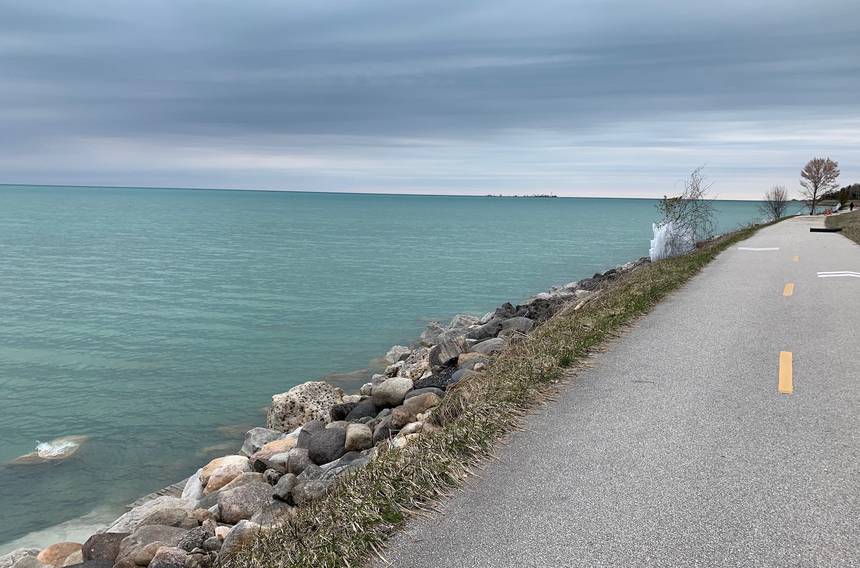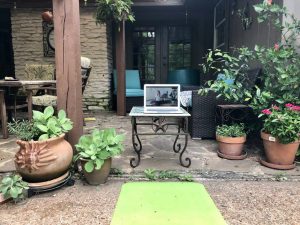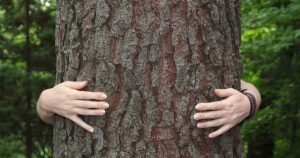People are realizing how badly they need nature

Only it can provide the rejuvenation and entertainment that cannot be found elsewhere.
My favorite bike route meanders through a forest for several miles, before doubling back along a paved path that clings to the edge of Lake Huron. It takes me an hour to ride the whole thing and usually I encounter very few other people, maybe a lone jogger or another a cyclist, but not many more than that. Sometimes there’s no one else on the trail at all.
Ever since isolation began, though, I’ve noticed a change. More people are out using the trails than ever before. This past weekend, I biked by more families than I could count, some walking or riding bikes, others crouched by streams or the lakeshore, while kids dragged sticks and tossed rocks into the water. Parents waited patiently nearby while their kids played. No one was in a hurry to go anywhere, because there was nowhere else to be – and when you’re bored, nature is an extraordinarily effective cure.
Contrary to the fears of local government officials (and concerned readers, no doubt), the people I saw on these trails don’t appear to be using it to socialize, but rather as a way to get outside as a single family unit, to escape the confines of home and recharge themselves in the open air. Access to fresh air is a basic human need that everyone is entitled to, as long as they respect the six-feet-of-separation rule when encountering others. (Business Insider reports that even infectious disease expert Anthony Fauci and New York state governor Andrew Cuomo go for regular jogs.)
As someone who has long advocated for children to spend more time play freely in nature, seeing all these families along the trails is a most wonderful and welcome sight. It makes me hopeful that families are forming new habits that they’ll continue to embrace in post-pandemic times. Surely, once they discover the positive effect of nature on their children’s creativity, physical development, and overall mood, not to mention the fact that nature has a magical ability to keep kids entertained longer than most indoor toys and wears them out for an easier and earlier bedtime, they’ll keep heading for the forest or the lake on a regular basis.
In an op-ed for Scientific American, Laurence Smith writes that the coronavirus is forcing people to reevaluate natural outdoor spaces for the first time in decades. After decades of declining interest – “humanity’s interest in outdoor recreation peaked in the 1980s and early 1990s, and has been steadily dropping ever since,” he writes – these natural spaces are suddenly getting the respect and attention they deserve because we’re now beginning to comprehend just how badly we need them. Smith delves into some of the science behind the nature-human connection:
“One University of Michigan study that sent adult study subjects for a 50-minute walk through an Ann Arbor park found that it measurably restored their cognitive skills, whereas a walk through the city’s busy downtown degraded it. These improvements in brain function were observed regardless of a person’s mood, weather conditions or other external factors. Importantly, peacefulness alone (such as sitting in a quiet room) could not reproduce the observed cognition benefit.”
Ideally, this pandemic experience will lead planners in urban areas to redesign for more natural green spaces, now that we’re realizing how badly we need them. Smith points out that 90 percent of the world’s cities (where more than half of the world’s population now lives) were built next to rivers, many of which now have abandoned or underdeveloped industrial waterfront zones. These could be transformed into “reimagined urban riverfronts [and] offer a rare opportunity to create vibrant, appealing neighborhoods with public access to calm outdoor settings and a curated form of nature.”
Mayors of rural towns could start allocating more money toward building and upgrading trails for biking and walking, providing a boost both to public health and tourism. Perhaps these pandemic-era lessons will prompt educators to structure school days around more outdoor play time and parents to prioritize forest hikes and pond visits over indoor extracurricular activities and organized sports.
Marc Berman, a psychologist at the University of Chicago, said, “Our research has found that nature is not an amenity — it’s a necessity.” People, and kids in particular, need to be outside, and if our slower-paced pandemic lifestyle can be an opportunity to realize that, it could be a tremendous long-term benefit.
Only it can provide the rejuvenation and entertainment that cannot be found elsewhere.
Please enable JavaScript to view the comments.







